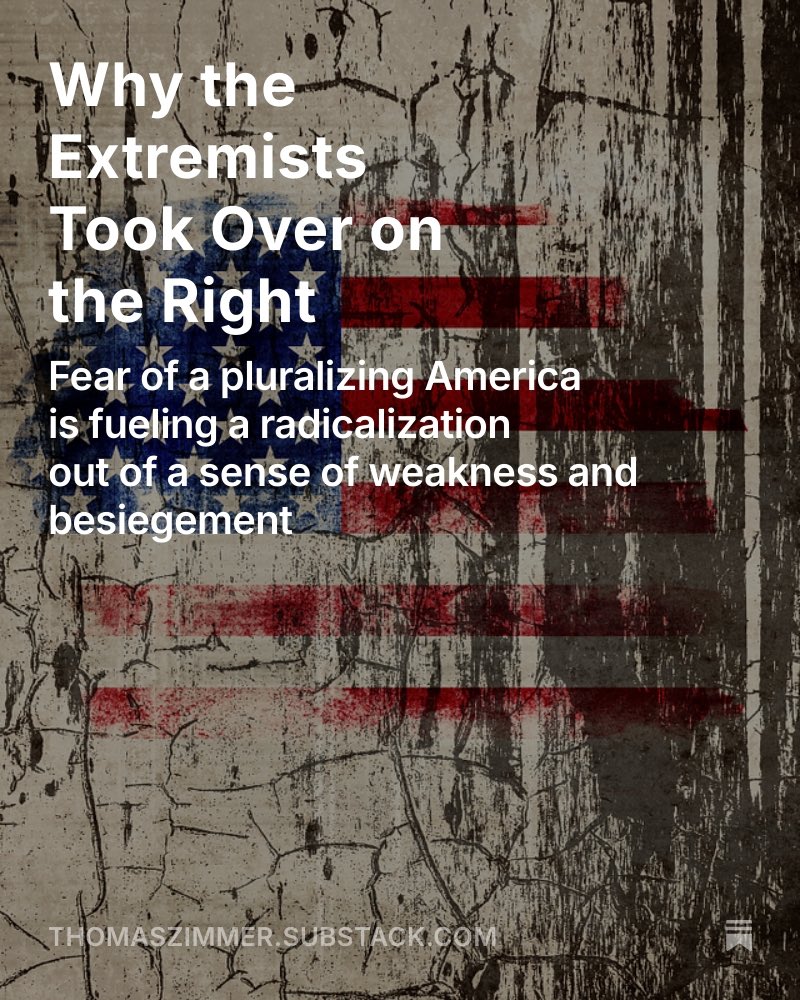To elaborate on this excellent point: America has always been dominated by one group - conservative white Christians. And a political system that threatened their privileged status - true democracy - has always been anathema to them.
https://twitter.com/vasabjit_b/status/1291935202365837313
What’s changed is that until recently, conservative white Christians were dominant in both parties, so they regarded both Republican and Democratic rule as legitimate.
That’s no longer the case though: Only one party, the GOP, has pledged to preserve and defend white conservative Christian rule by whatever means necessary, while the other is pursuing a more pluralistic, (small-d) democratic vision.
Under these circumstances, the quest to perpetuate conservative rule has morphed into a quest for one-party rule. White conservative Christians have been very consistent: They were never committed to anything other than herrenvolk democracy.
• • •
Missing some Tweet in this thread? You can try to
force a refresh






